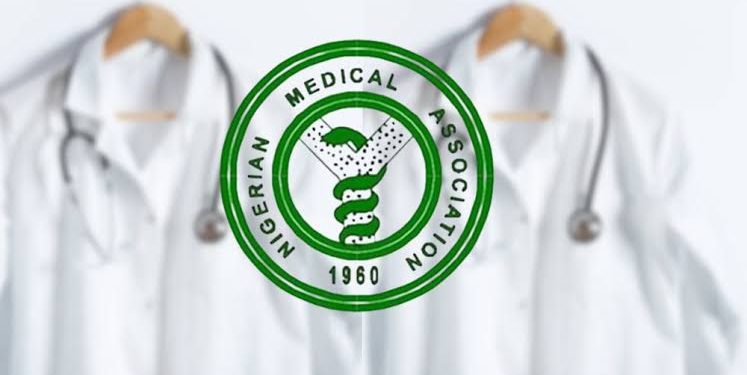Abuja, Nigeria – July 29, 2025 – Nigeria’s healthcare system is facing a perfect storm, with ongoing doctors’ strikes, crippling economic hardship, and pervasive insecurity converging to create a crisis of epic proportions. Beyond the headlines and statistics, it is the human stories of suffering, resilience, and despair that truly paint a grim picture of a nation struggling to provide basic care for its citizens.
The Silent Casualties of Strikes:
Doctors’ strikes, often a result of unresolved welfare issues, poor working conditions, and inadequate facilities, have become a recurring nightmare for ordinary Nigerians. Hospitals, once beacons of hope, are now often ghost towns, or operating with a skeleton staff, leaving countless patients in the lurch.

Take the case of Mama Ada, a 60-year-old grandmother in Lagos, battling severe rheumatism. Her scheduled appointment at the Lagos State University Teaching Hospital (LASUTH) was abruptly cancelled due to the ongoing warning strike by doctors. “My pain has worsened, and I was so hopeful for today’s consultation,” she lamented, her face etched with distress. “Now they’ve postponed it to August 4th. What am I to do until then?”
Similarly, the family of a middle-aged man in Ibadan expressed their anguish when his much-needed surgery was postponed indefinitely at the University College Hospital (UCH). “We had made all the arrangements, borrowed money, and now we are back to square one,” his son despaired, highlighting the financial and emotional toll these strikes inflict.
These are not isolated incidents. Across the country, stories emerge of patients turned away, critical treatments delayed, and in tragic instances, lives lost due to the inability to access timely medical attention. The striking doctors, while advocating for their rights, are also caught in a painful dilemma, often voicing their concern for patients but placing the ultimate blame on the government’s failure to address their demands.
ALSO READ: https://nationscuriosity.com/exposing-the-roots-investigative-journalism/
The Crushing Weight of Economic Hardship:
Even when healthcare services are theoretically available, the escalating economic hardship makes them unaffordable for a vast majority of Nigerians. Soaring inflation and unemployment have pushed essential healthcare services beyond the reach of many.
Consider the plight of a single mother of three in a Lagos slum, battling diabetes. Her meager and irregular income forces her to choose between feeding her children and affording her vital medication. “I often skip meals, or eat cheap, unhealthy street food,” she confessed, her voice barely a whisper. “Sometimes, I have to choose between my treatment and ensuring my children don’t go hungry. My health suffers, but what choice do I have?”
For those managing chronic illnesses like cancer, diabetes, or hypertension, the financial burden is immense. Consultation fees, medication costs, and diagnostic tests have become luxury items, leading to delays in seeking medical attention, often until conditions become critical. Many patients simply abandon their treatment regimens, unable to sustain the financial strain.
Insecurity: A Barrier to Care:
Compounding these challenges is the pervasive insecurity plaguing many parts of Nigeria. Banditry, kidnapping, and insurgency have rendered many rural areas virtually inaccessible, forcing healthcare facilities to shut down and medical personnel to flee.
In communities ravaged by insecurity, residents often have to travel perilous distances – sometimes 10 to 15 kilometers – just to reach the nearest functional health facility. This has led to a drastic decline in the utilization of health services, particularly for vulnerable groups like pregnant women. “Most of our pregnant women have to leave the community when approaching their delivery date, due to lack of medical attention,” shared a community leader in a remote village in Sokoto State. “Those who stay live with the fear of tragic outcomes.”
The destruction of healthcare infrastructure, the displacement of medical staff, and the constant threat of violence mean that even basic healthcare services are severely compromised in these regions. Diseases like cholera and other waterborne illnesses spread unchecked, exacerbated by the lack of clean water and inadequate public health programs in conflict-affected areas.
A Call for Urgent Action:
The interwoven crises of doctors’ strikes, economic hardship, and insecurity are pushing Nigeria’s healthcare system to the brink. The human cost is immeasurable, leaving a trail of preventable illnesses, disabilities, and deaths.
There is an urgent need for a comprehensive and compassionate approach from all stakeholders. This includes:
- Prompt and sustainable resolution of doctors’ demands: Addressing their welfare, working conditions, and providing adequate resources is crucial to stemming the “brain drain” and ensuring a stable medical workforce.
- Targeted interventions to alleviate economic hardship: Policies that improve living standards, reduce inflation, and provide social safety nets can significantly improve healthcare access for vulnerable populations.
- Robust security measures: Protecting healthcare facilities and personnel, and ensuring safe access to care in all regions, is paramount.
- Increased investment in healthcare infrastructure and human resources: This will lay the foundation for a resilient and accessible healthcare system for all Nigerians.
The stories of struggle and resilience highlight the urgent need for a healthier, more secure, and economically stable Nigeria, where no one is left behind in their pursuit of well-being.


